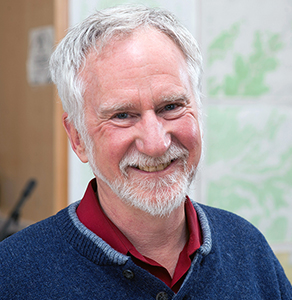Biochemistry Professor John Browse and anthropology Professor Tim Kohler were elected to the National Academy of Sciences in recognition of their achievements in original research.
Browse and Kohler are among just 150 new members announced on May 3. First established by U.S. Congress and President Abraham Lincoln in 1863, the National Academy of Sciences is a nonprofit society of scholars charged with providing independent, objective advice about science and technology to the nation.
John Browse
- Charlotte Martin Distinguished Professor in Agricultural Research
- Regents professor of biochemistry and molecular plant sciences, Institute of Biological Chemistry

Browse is a pioneer and leader in plant biology. His research focuses on investigating the biosynthesis of membrane and seed-storage lipids in plants, using Arabidopsis, or thale cress, a model organism often used to understand plant biology. His work has improved understanding of plant defenses and helped bioengineer plants with higher amounts of useful chemicals, such as increased levels of heart-healthy monounsaturated fatty acids. He is also well known for identifying and cloning the desaturase gene in Arabidopsis, responsible for the synthesis of polyunsaturated fatty acids in plants.
Tim Kohler
- Regents Professor Emeritus of Archaeology and Evolutionary Anthropology
- External Professor, Santa Fe Institute

Kohler studies the social dynamics of prehistoric cultures, specializing in the U.S. Southwest. His research explores the relationships among demography, violence, wealth inequality, social evolution, and climate variability. While his work has improved methods of understanding the past, his findings have echoes into the present — which was recently recognized when the United Nations named Kohler as a lead author on a recent Intergovernmental Panel on Climate Change report. Kohler’s current projects include the SKOPE project to make interpreted paleoenvironmental data widely accessible, and another National Science Foundation-funded project to generate and analyze measures of wealth inequality in societies around the world over the last 10,000 years.





